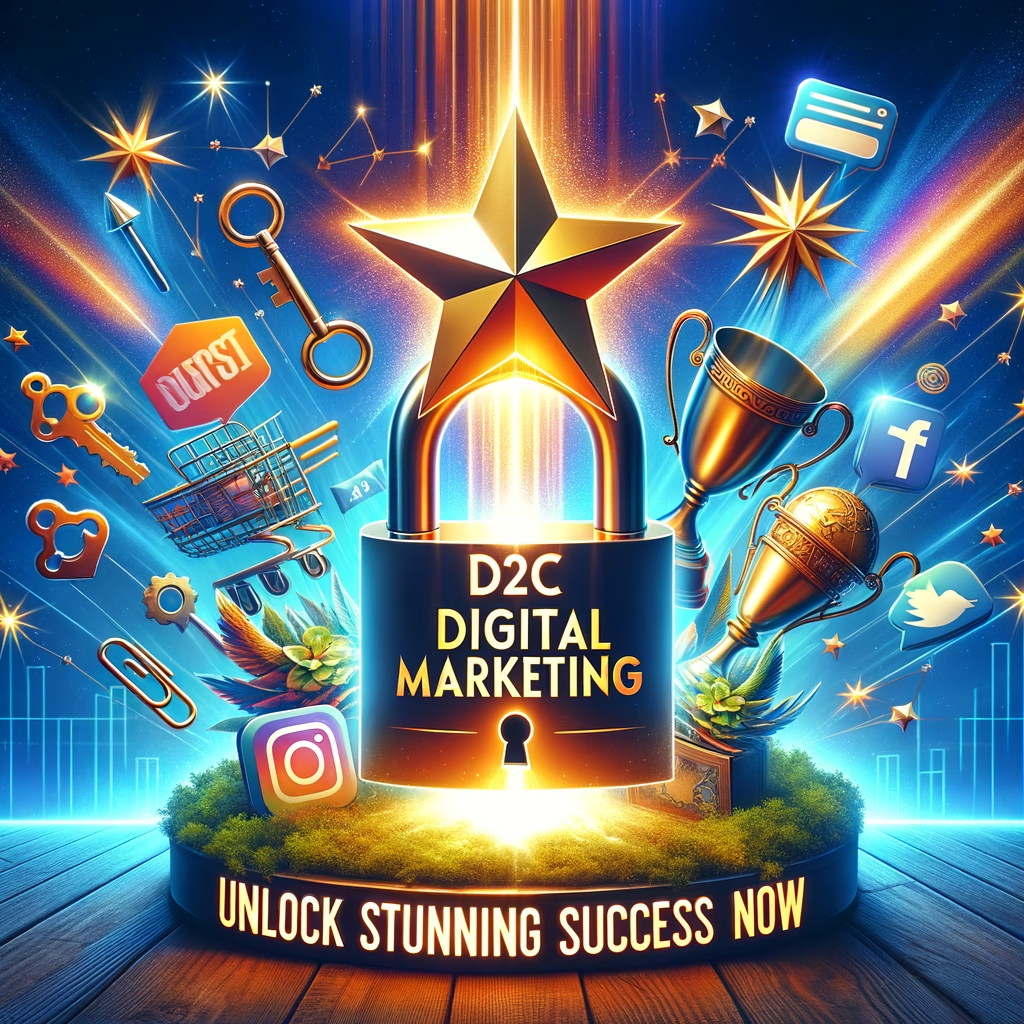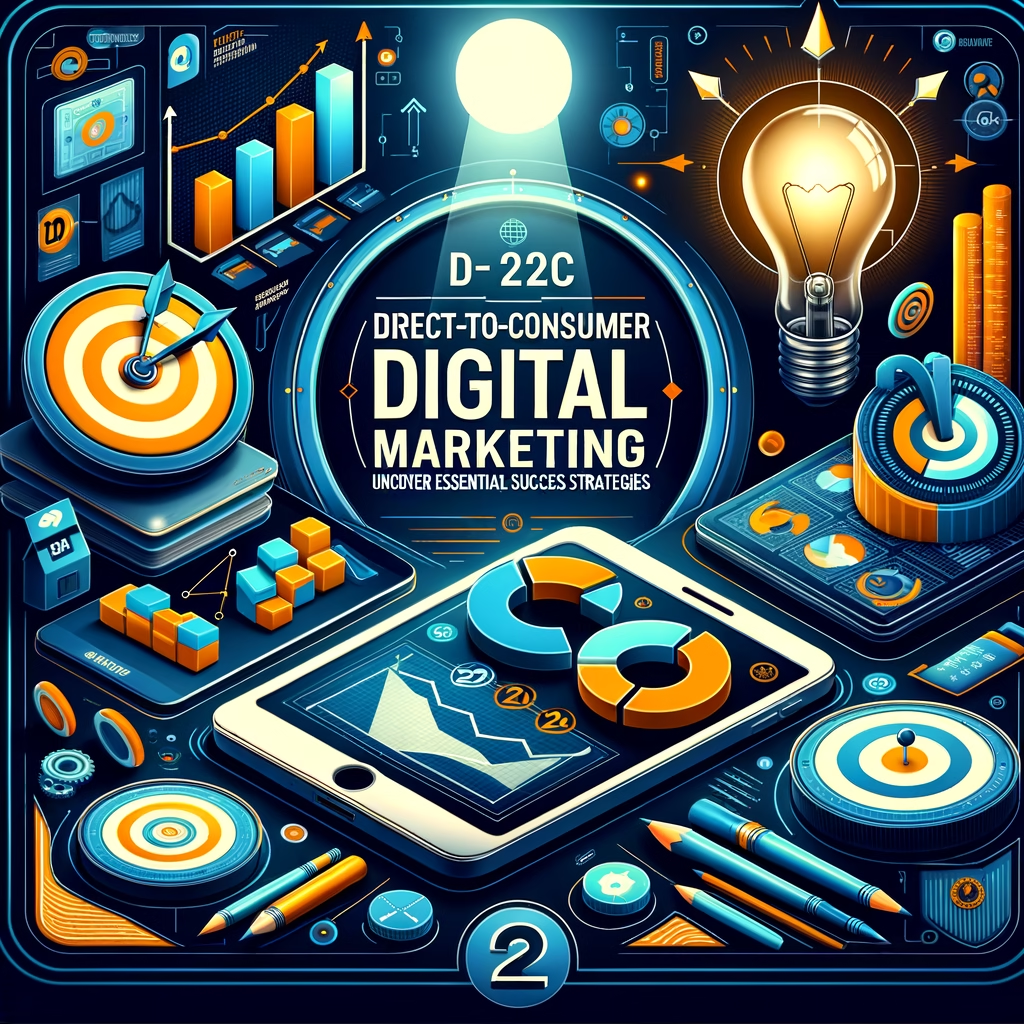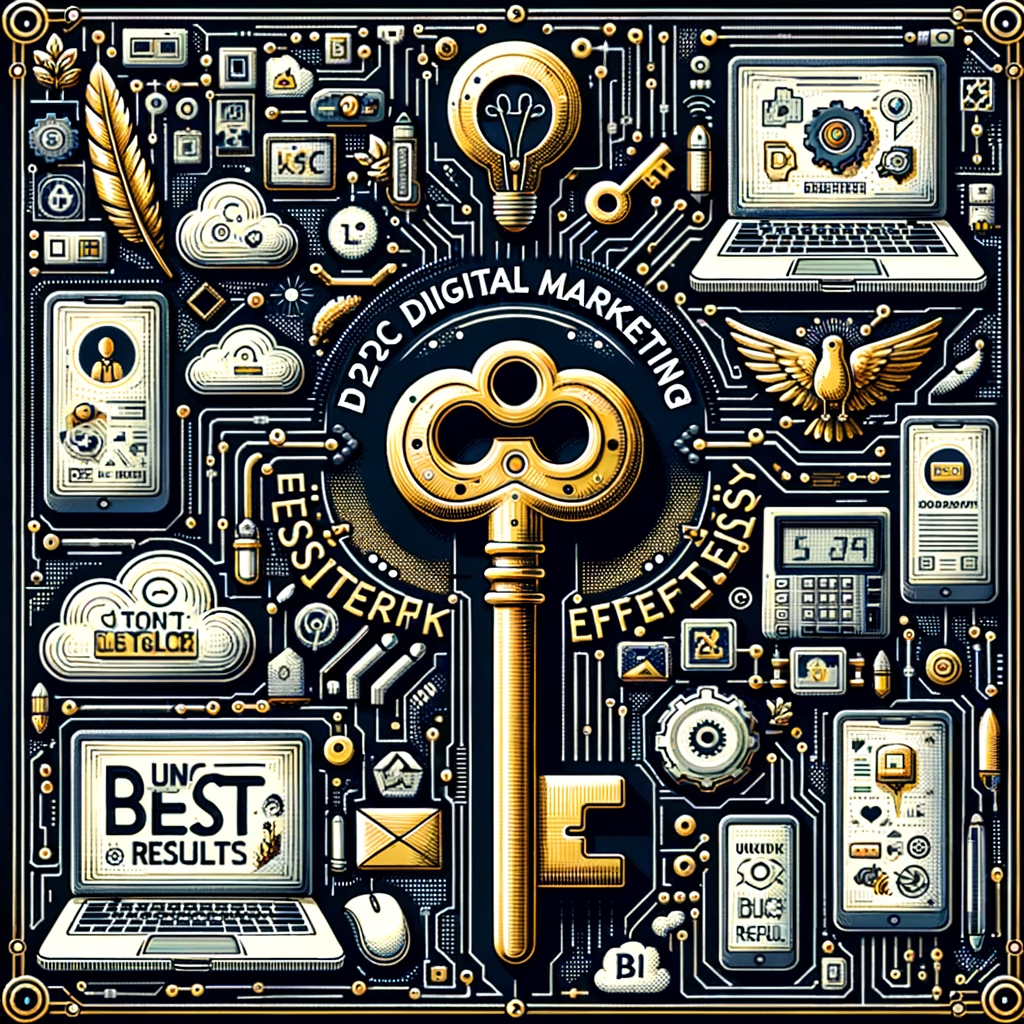- Understanding the Role of D2C Marketing Tools
- Types of D2C Digital Marketing Tools
- Social Media Management Tools
- Customer Relationship Management (CRM) Tools
- Analytics Tools
- Email Marketing Tools
- Integrating Tools for Maximum Impact
- Choosing the Right Tools
- Streamlining Workflows
- Benefits of Using D2C Digital Marketing Tools
- Enhanced Customer Engagement
- Improved Data-Driven Decisions
- Cost Efficiency
- Challenges in Deploying D2C Marketing Tools
- Data Privacy Concerns
- Tool Overload
- Keeping Up with Technological Advancements
- Case Studies: Brands Successfully Utilizing D2C Marketing Tools
- Glossier: Social Media Savvy
- Warby Parker: Seamless Customer Interactions
- Conclusion: Unlocking Success with the Right Tools
Harnessing the Power of D2C Digital Marketing Tools: Unlock Stunning Success Now
Direct-to-consumer (D2C) digital marketing tools are redefining how brands connect with their audiences. As businesses evolve, the deployment of sophisticated tools has become integral for achieving a robust online presence. This unique angle focuses on leveraging the right digital marketing tools to unlock unparalleled success in the D2C landscape.
Understanding the Role of D2C Marketing Tools
In the dynamic world of D2C digital marketing, tools enhance a brand’s ability to operate independently. These tools streamline communication, optimize operations, and provide invaluable insights into consumer behavior. By harnessing them effectively, brands can create personalized experiences that drive greater engagement and conversion.
Types of D2C Digital Marketing Tools
Different tools serve varied purposes in the realm of digital marketing. Here’s a look at some essential categories:
Social Media Management Tools
Social media platforms are crucial in D2C marketing, providing direct access to consumers. Tools like Hootsuite and Buffer allow brands to schedule posts, monitor engagement, and analyze performance across various platforms, making it easier to maintain an active and engaging presence.
Customer Relationship Management (CRM) Tools
CRM tools such as Salesforce and HubSpot are vital for managing customer interactions and data. They help brands maintain seamless communication, track customer preferences, and improve service delivery. These tools enable personalized marketing strategies that resonate with individual consumer needs.
Analytics Tools
Analytics tools like Google Analytics and Adobe Analytics provide businesses with deep insights into website performance and consumer behavior. These insights allow for data-driven decision-making, ensuring marketing efforts are both strategic and effective.
Email Marketing Tools
Email marketing remains a powerful channel for D2C brands. Tools such as Mailchimp and Constant Contact facilitate the easy creation, management, and tracking of email campaigns, ensuring messages reach the right audience at the right time.
Integrating Tools for Maximum Impact
The true potential of D2C digital marketing tools is unlocked when they are integrated seamlessly into a brand’s marketing strategy. This integration enhances efficiency, streamlines workflows, and improves communication.
Choosing the Right Tools
Selecting the right tools begins with understanding specific business needs. Brands should assess their marketing objectives, budget, and target audience to determine which tools align best with their goals. The right combination of tools can drive efficiency and boost ROI.
Streamlining Workflows
Streamlined workflows are critical for marketing teams to operate effectively. Integrating tools such as project management software like Asana or Trello, alongside marketing-specific tools, can enhance team collaboration, track project progress, and ensure timely execution of campaigns.
Benefits of Using D2C Digital Marketing Tools
The strategic use of these tools offers numerous benefits that can propel a D2C brand toward success.
Enhanced Customer Engagement
By utilizing CRM and customer analytics tools, brands can deliver personalized experiences that foster deeper connections with consumers. This personalization leads to increased customer satisfaction and loyalty.
Improved Data-Driven Decisions
Access to real-time data through analytics tools allows brands to make informed decisions quickly. Understanding consumer behavior and preferences helps fine-tune marketing strategies, ensuring relevance and efficiency.
Cost Efficiency
Many digital marketing tools offer automation features that save time and reduce manpower costs. For instance, automating email marketing campaigns or using AI for customer service can lower operational expenses while maintaining high service standards.
Challenges in Deploying D2C Marketing Tools
Despite their advantages, there are challenges associated with implementing these tools effectively.
Data Privacy Concerns
The use of digital tools often involves handling sensitive customer data. Ensuring compliance with data protection regulations, like GDPR, is crucial to maintaining consumer trust and avoiding legal issues.
Tool Overload
With myriad tools available, brands can struggle with tool overload, where managing multiple platforms becomes cumbersome. A consolidated strategy is essential to ensure that all tools work cohesively and do not complicate the marketing process.
Keeping Up with Technological Advancements
The rapid evolution of digital marketing technologies demands continuous learning and adaptation. Brands need to stay updated with the latest trends and tools to remain competitive and effective.
Case Studies: Brands Successfully Utilizing D2C Marketing Tools
Examining how successful brands leverage digital marketing tools can provide valuable insights.
Glossier: Social Media Savvy
Beauty brand Glossier uses social media management tools with exceptional skill, creating a community-driven marketing approach. By listening to customer feedback and engaging directly on platforms like Instagram, Glossier has built a loyal customer base and expanded its reach drastically.
Warby Parker: Seamless Customer Interactions
Warby Parker effectively utilizes CRM tools to enhance customer interactions. Their implementation of sales and service automation ensures customers receive timely assistance and personalized experiences, boosting customer satisfaction and brand loyalty.
Conclusion: Unlocking Success with the Right Tools
In the competitive D2C market, the strategic use of digital marketing tools is indispensable. By understanding and implementing these tools effectively, brands can enhance customer engagement, drive efficient marketing operations, and ultimately unlock stunning success. Staying informed about the latest advancements and tailoring tools to specific business needs will position D2C brands for long-term growth in the ever-evolving digital landscape.




